Analysis: Iran's pragmatic foreign policy bolsters its regional standing and isolates Israel
By Alireza Akbari
In response to Israel’s new act of aggression against Iran, many countries around the world rallied behind the Islamic Republic, strongly denouncing the "breach of international law."
Israeli missile strikes targeted Iranian military sites in the border cities of Ilam, Khuzestan, and the capital city of Tehran, but failed to make a significant impact.
The airstrikes were "effectively intercepted and countered" by Iran's integrated air defense system.
Israeli mouthpieces tried to justify the aggression under the label of "retaliatory" strikes, forgetting that Iran's 'Operation True Promise II' was in response to a series of assassinations of resistance icons.
Regional countries came out in support of Iran and united in their condemnation of the Tel Aviv regime's blatant aggression while reaffirming Tehran's “legitimate right to defend itself.”
Statements from Saudi Arabia, Russia, Turkey, Malaysia, Oman, Pakistan, Iraq, Syria, Jordan, Qatar, the UAE, Lebanon, and Kuwait underscored the success of Iran's pragmatic diplomacy as well as its stupendous success in the military arena.
These nations, while condemning the Israeli aggression, called on the international community to take decisive measures to end its longstanding impunity.
Saudi Arabia was one of the first countries to express its “condemnation and denunciation” of the Israeli strikes against the Islamic Republic while calling for de-escalation of tensions.
Russia warned of an “explosive escalation” in the region after the Israeli aggression. Turkey condemned the Israeli regime for bringing the region “to the brink of a wider war.”
Condemnations pour in after Israeli aggression against Iranhttps://t.co/kpBxj5ZtQQ
— Press TV 🔻 (@PressTV) October 26, 2024
Malaysia, the first country to issue a statement following the Tel Aviv regime's aggression, called for an immediate cessation of Israeli “hostilities and an end to the cycle of violence.”
Oman, a close ally of Iran and mediator of regional conflicts, described the Zionist regime's aggression as a "blatant violation of Iran’s sovereignty and a clear breach of international law."
Pakistan also denounced the Israeli aggression as a danger to the path to regional peace.
“These strikes undermine the path to regional peace and stability and also constitute a dangerous escalation in an already volatile region," the South Asian country said.
Iraq denounced global inaction against Israel's expansion of aggressive policies in West Asia.
"The occupying Zionist entity continues its aggressive policies and widening the conflict in the region through blatant attacks that it carries out with impunity," the Arab country stated.
Pertinently, Iraqi authorities reportedly lodged a complaint to the United Nations on Monday over Israel's use of its airspace to strike Iran, calling it a “flagrant violation” of its sovereignty.
Syria slammed the Israeli act of aggression against the Islamic Republic, underlining “Iran’s legitimate right to defend itself, protect its territories and the lives of its citizens.”
Jordan, which previously had downed some Iranian drones in April, described the Israeli strikes against Iran as a “violation of international law,” calling on the international community to “assume its responsibilities and take immediate measures to impose a halt to the Israeli aggression.”
Qatar considered the Israeli aggression against Iran as a blatant violation of Iran’s sovereignty and a clear breach of the principles of international law.
The United Arab Emirates put forth a call to strengthen “dialogue,” uphold "international laws," and respect the "sovereignty of nations."
Iranian Foreign Minister Araghchi makes unannounced visit to Beiruthttps://t.co/dz7Tro7Odp
— Press TV 🔻 (@PressTV) October 4, 2024
Lebanon, which has been reeling under Israeli attacks for months, condemned the Israeli aggression.
“These attacks constitute a violation of Iran’s sovereignty and a serious threat to regional and international security and peace," the Arab country stated.
Kuwait slammed the Israeli regime for “endangering the security of the region.”
Following the widespread condemnation of Israeli aggression by regional and extra-regional countries, analysts contend that Iran’s foreign policy, anchored in principles of neighborliness, interaction, and dialogue, along with unwavering support for the oppressed in Gaza and Lebanon, has facilitated Tehran's proactive engagement on both regional and international fronts.
According to experts, central to Iran's diplomatic strategy is a commitment to fostering constructive relationships with neighboring countries, which was demonstrated in recent weeks by the country's top diplomat Abbas Araghchi as he toured several countries across the region despite threats.
This approach reflects Tehran's understanding that regional stability and prosperity are interlinked.
Experts point to the recent engagements of Foreign Minister Araghchi as well as President Masoud Pezeshkian, particularly during regional tours and high-level international forums such as the BRICS 2024 Summit in Kazan, as evidence of Iran’s dedication to enhancing cooperation, expediting existing agreements, and promoting a secure and prosperous environment.
Referring to UAE President Sheikh Mohammed bin Zayed Al Nahyan’s desire to visit Iran, underscoring the importance of independently resolving bilateral issues while eschewing external interference, analysts said that by prioritizing open dialogue with regional countries, Tehran has made significant progress in bridging gaps with neighboring countries and fostering mutual trust.
This reliance on dialogue-centric diplomacy is consistent with Iran’s broader policy of neighborliness, which frames relationships not in terms of competition but through shared interests, as was demonstrated by President Ebrahim Raeisi and now President Pezeshkian.
Op. True Promise II just warning to Israel, only small part of our power, IRGC chief sayshttps://t.co/SV9KpSjXXq
— Press TV 🔻 (@PressTV) October 18, 2024
Experts also identify Iran's unwavering support for the oppressed in Gaza and Beirut as a key factor in its ascendance as a leading player in regional dynamics, saying that, unlike some nations that offer only verbal solidarity, Iran has consistently backed its commitments with tangible actions.
This commitment, according to commentators, was evident earlier this month when Iran launched a barrage of 200 missiles in a retaliatory operation, dubbed Operation True Promise II, aimed at avenging the blood of assassinated resistance leaders and the victims of the Israeli genocide.
Only a few days after the operation, Araghchi arrived at Beirut's Rafic Hariri International Airport for a regional tour, where he reaffirmed the Islamic Republic's “support” for the resistance and the people of Gaza and Beirut amid ongoing Israeli strikes.
Experts suggest that Iran's consideration for the oppressed is evident in its measured response to recent Israeli provocations, particularly in the context of 'Operation True Promise II'.
They also point to the statement issued by the General Staff of the Armed Forces following Israeli strikes, which emphasized the Islamic Republic's right to deliver a “lawful and legitimate response” while underscoring the urgent need for a “sustainable ceasefire in Gaza and Lebanon."
This dual focus—on defending national sovereignty while advocating for regional peace—highlights Iran's commitment to regional stability amid ongoing tensions, as observers note.
Hamas blasts Western media for blindly defending false Israeli narrative
ElBaradei condemns US threats of military action against Iran
‘No two-hour war’: Iran vows immediate retaliation to any attack
VIDEO | US warmongering threatens stability
Pezeshkian: US must end provocations if it seeks genuine diplomacy
Iran summons German ambassador over Merz’s ‘low-minded’ remarks
Iran's Armed Forces warn EU of ‘consequences’ of IRGC designation
Iran FM: EU’s blacklisting of IRGC a ‘major strategic mistake’


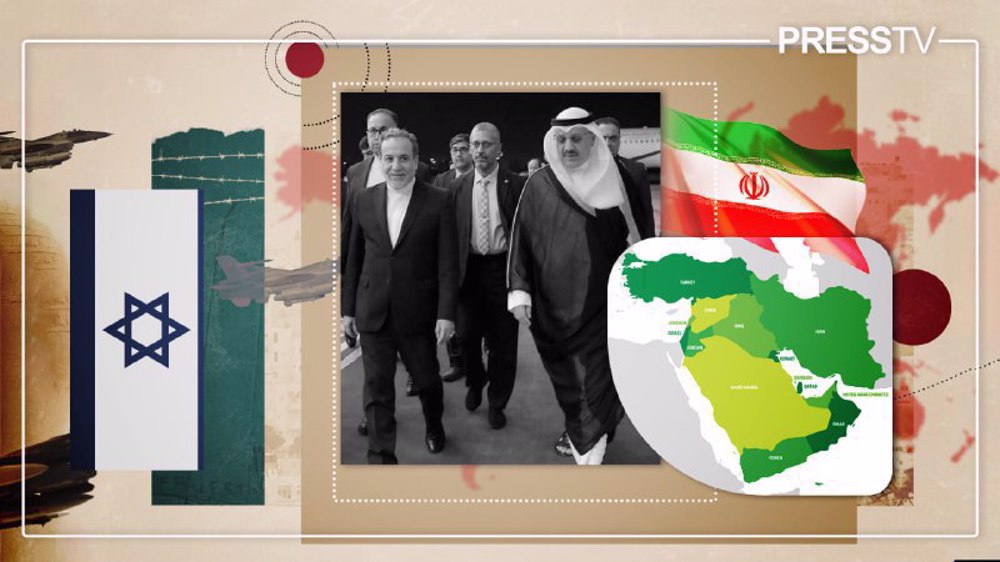
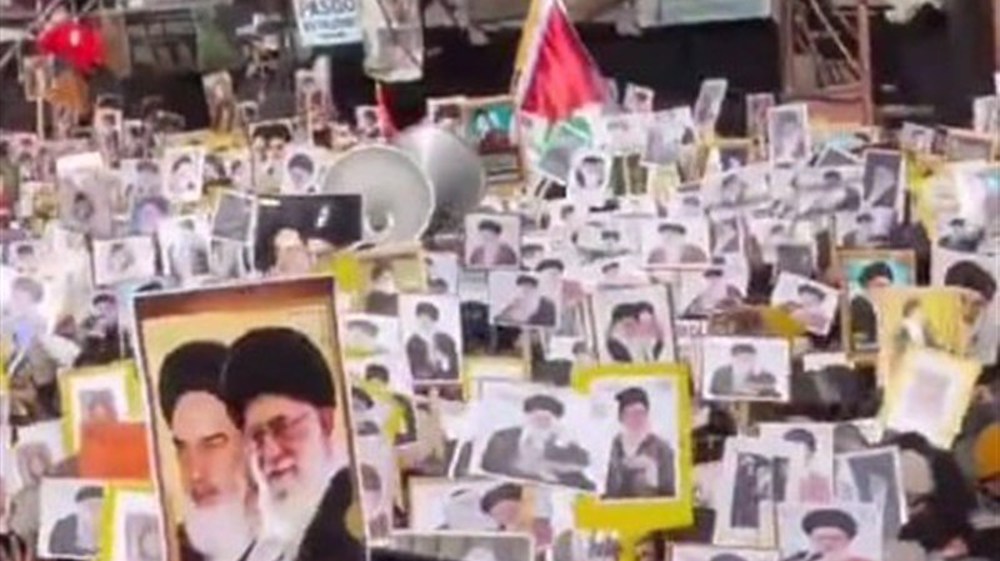
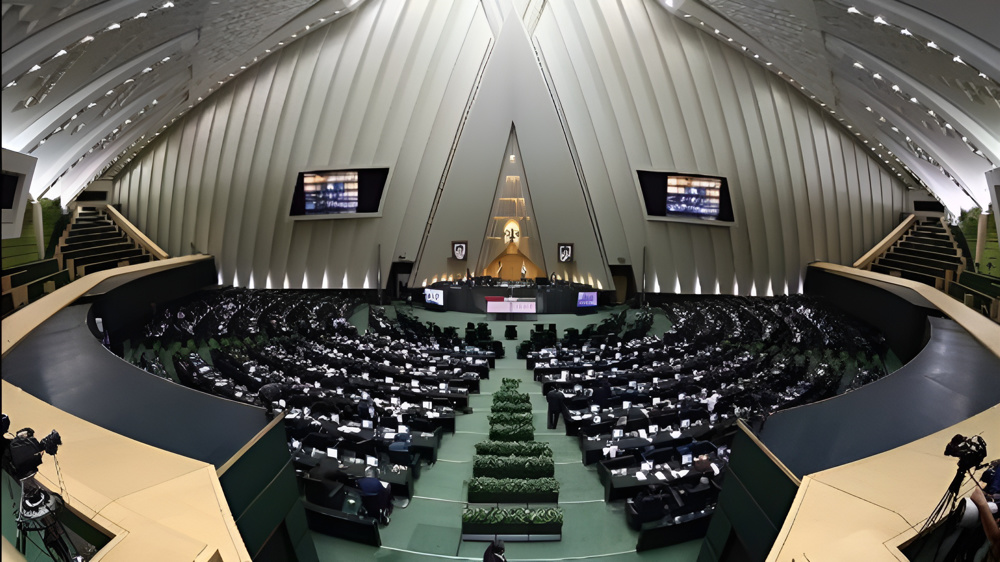
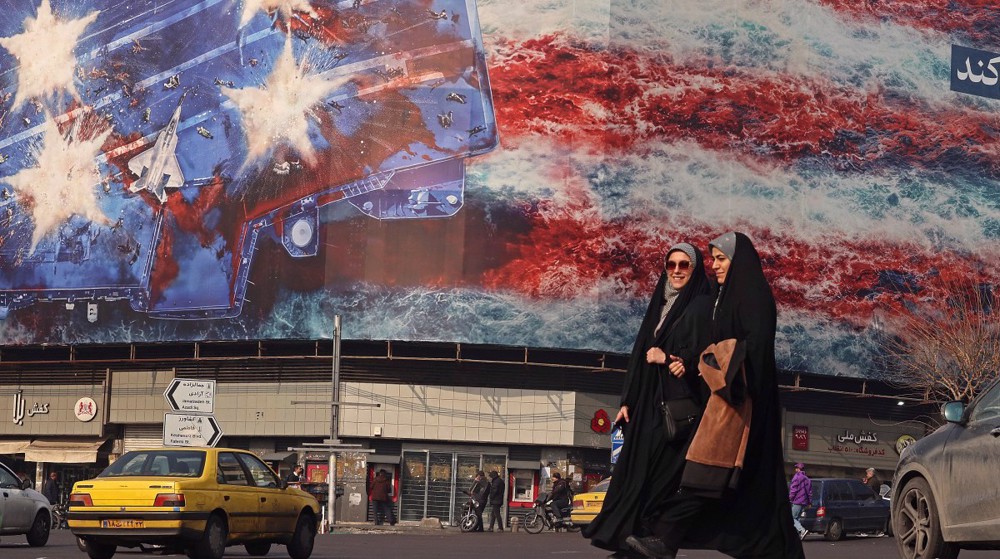



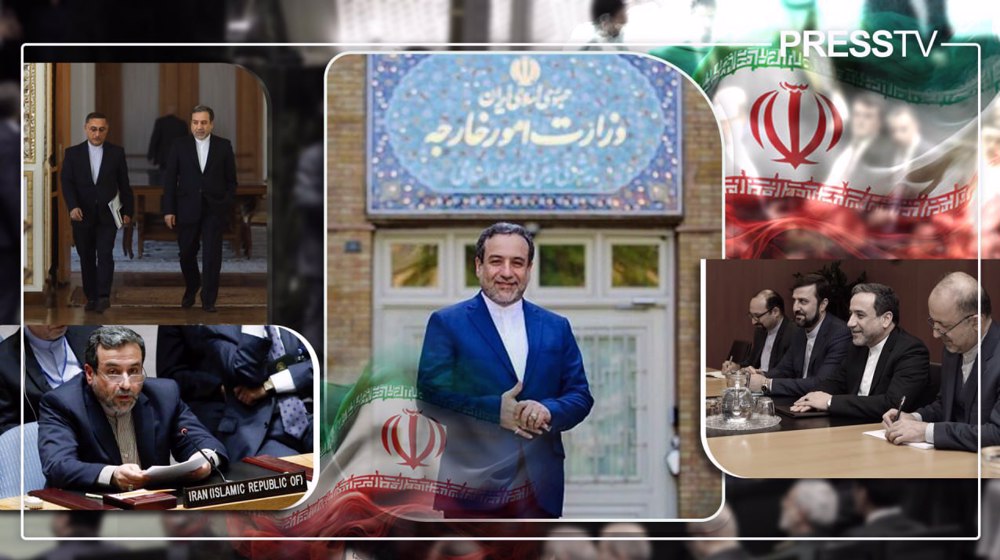
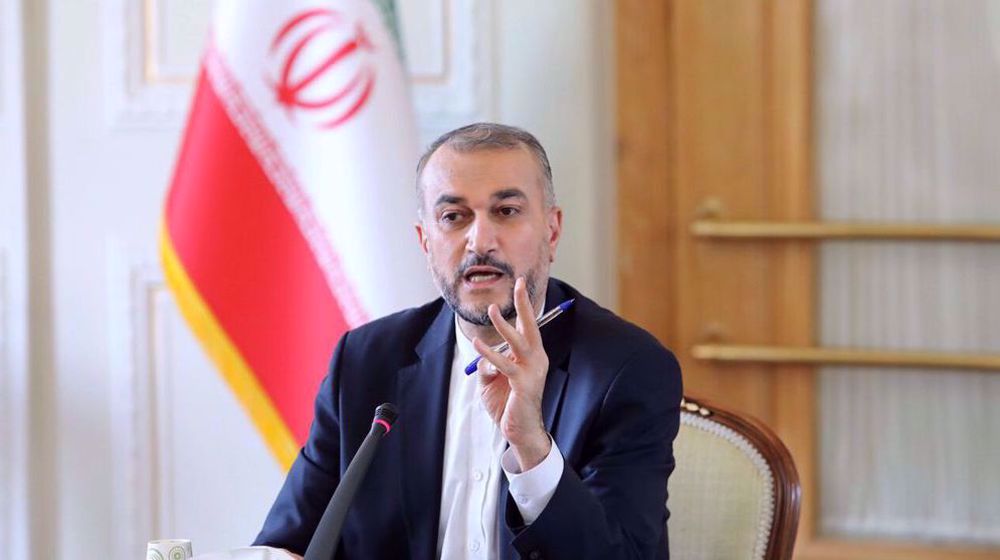
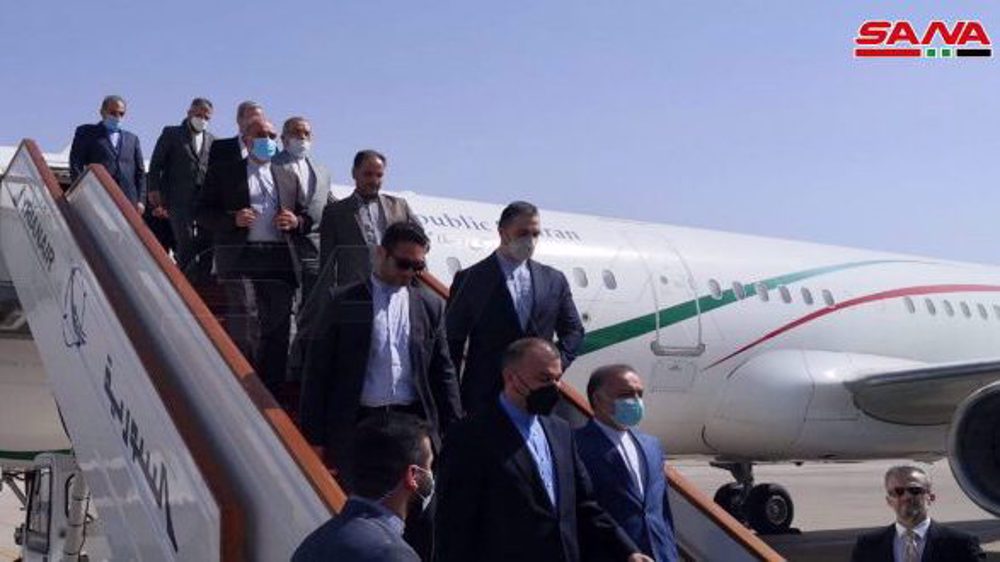
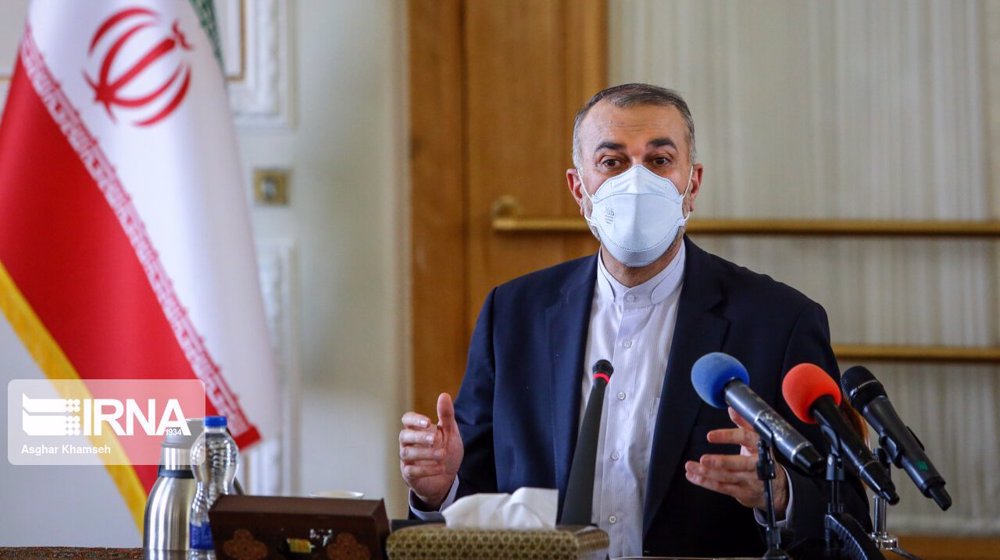
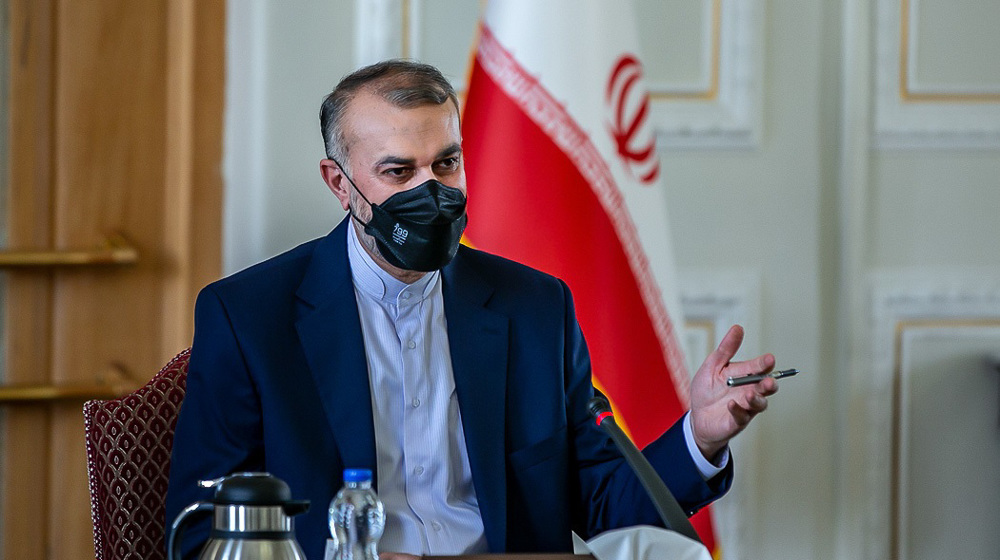



 This makes it easy to access the Press TV website
This makes it easy to access the Press TV website